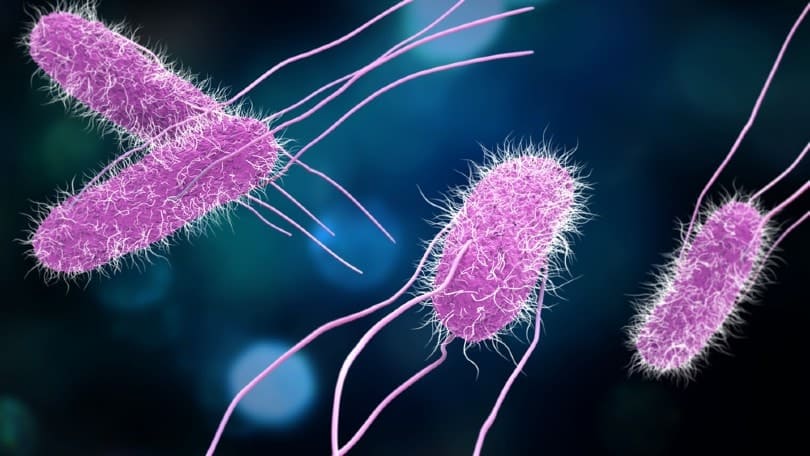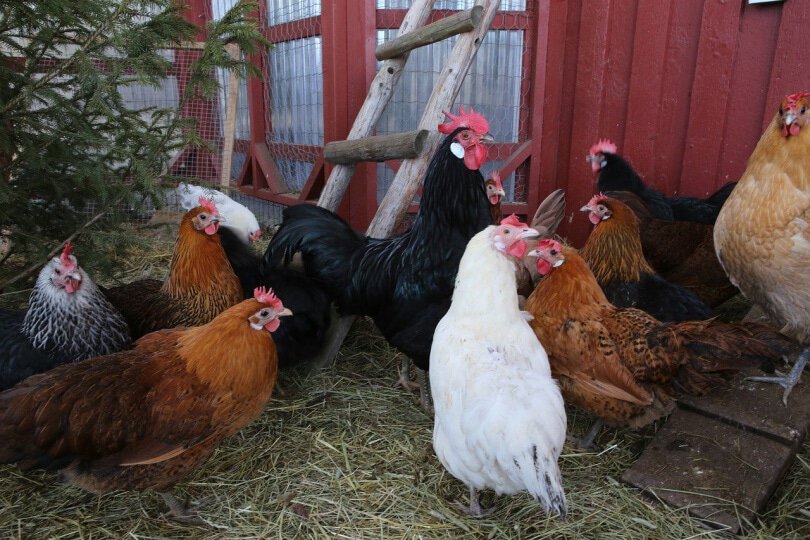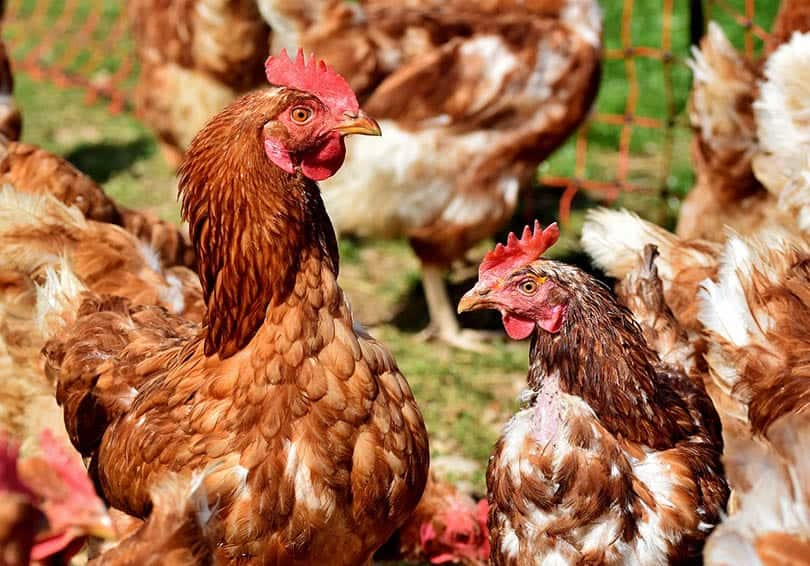Salmonella is one of the things many people commonly hear about concerning raw or undercooked poultry. It’s a dangerous infection that can be spread quickly via cross-contamination. If you are new to chicken farming or have a chicken as a pet, you want to be aware that chickens can get salmonella.
It’s crucial to understand what salmonella is, the risks associated with it, and how it occurs in the first place if you’re interested in keeping backyard chickens. Let’s go over how chickens get salmonella in this article.

What is Salmonella?
Salmonella is a type of bacteria. It is primarily located in the digestive tract of animals, including chickens and other poultry. It is a normal part of digestive flora that is not usually dangerous in its natural environment. Sometimes, salmonella may overgrow due to a poor immune system or an imbalance in the natural digestive flora.
Salmonella is most dangerous when consumed, and can happen from improper handling of meat, cross-contamination, and poor hand hygiene, especially after handling feces. Chicken keepers may be exposed to salmonella without even noticing it by handling their chickens. Chickens may get salmonella on their feet, feathers, and faces, which can then be spread to people.
Unwashed or improperly handled eggs are another common cause of salmonella infections from backyard chickens. This is because eggs come into contact with normal digestive flora. Often, bacteria are still present on the eggs when they are retrieved from hens for consumption. Without proper washing, salmonella can easily be passed from eggs to people.

How Do Chickens Get Salmonella?
Since salmonella is part of the normal flora in the digestive tract, all chickens have salmonella. However, not all chickens consume salmonella, leading to illness.
Chickens can get salmonella infections from exposure to the feces of other chickens or other animals. Chicken coops are often attractants for animals like mice and rats, leaving salmonella behind in their droppings. Chickens may step in infected feces and spread the bacteria throughout their living or feeding space. They also may accidentally consume fecal material when foraging for food.
It can even be possible for you to pass salmonella to your chickens accidentally. This is uncommon, but there are multiple ways this can happen. Obviously, poor hygiene after bowel movements is one way. The more common way you might pass salmonella to your chickens is by handling bedding, waste, or other coop materials that have salmonella present, not washing your hands properly, and then handling your chickens or their food or water.

What are the Chicken Salmonella Symptoms?
If allowed to progress without treatment, salmonella can be deadly for chickens. It’s important to catch symptoms early and seek veterinary intervention. Symptoms of salmonella infections in chickens include weakness, lethargy, an increase in thirst, inappetence, weight loss, purple-tinged wattles and combs, loose droppings that are yellow or green, and decreased egg production. If caught early, salmonella is usually very treatable and can have good outcomes.
How Can I Keep My Chickens from Getting Sick with Salmonella?
There are multiple things you can do to decrease the chance of your chickens getting sick with salmonella. The biggest thing you can do is simply ensure your chickens have a clean environment that is well kept. Routine bedding changes, providing fresh food and water daily, and cleaning the coop can all significantly reduce the risk of salmonella infections in your birds.
Preventing pest animals, such as mice and rats, is another way to prevent salmonella infections. Since their droppings are small, they can easily get pressed into bedding and crevices in the coop without being noticed. By preventing rodents, you’ll decrease the risk of salmonella occurring in the coop at all. Avoid using rodent poisons near your coop since they can be deadly to your chickens. Live traps and most types of quick-kill traps are great options to keep your chickens safe from rodents.
Other ways to prevent salmonella in your chickens are to practice good hand hygiene before, during, and after chicken handling and coop cleaning and to remove eggs you don’t intend to hatch as soon as possible. This will reduce the risk of a chicken coming into contact with salmonella bacteria that may be present on the egg’s shell.

Final Thoughts
Salmonella in chickens can be a severe problem that can wipe out your flock if left untreated. Sick chickens, especially those with runny stools, risk infecting other chickens. It’s essential to reach out for veterinary support if you believe you may have salmonella infections in your flock.
While salmonella can be dangerous for chickens, it can also be dangerous for humans, making keeping it under control even more important. You have multiple options for reducing the risk of salmonella infections in your chickens, though. Most of them are common sense and good husbandry practices but remember that something as simple as regular hand washing can go a long way.
Featured Image Credit: Capri23auto, Pixabay
